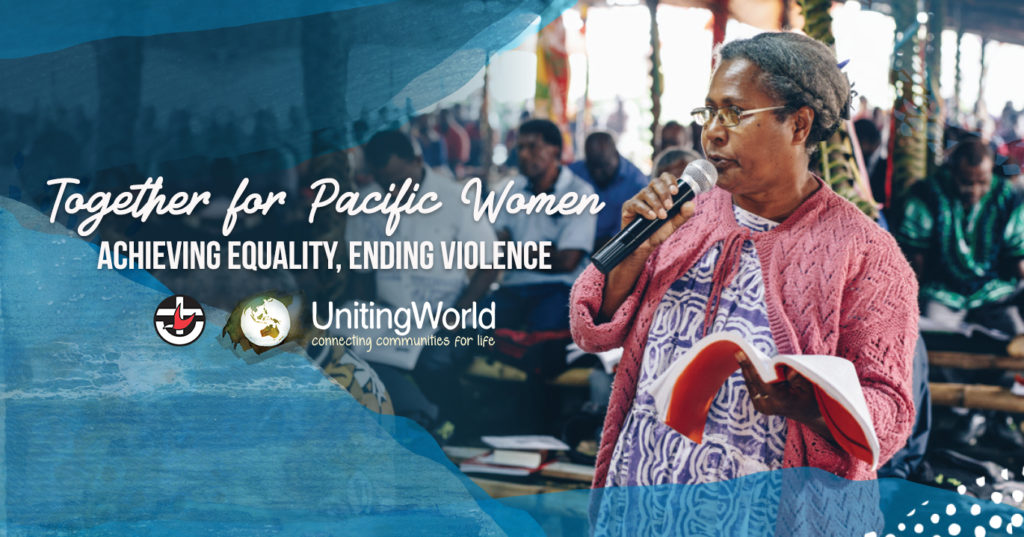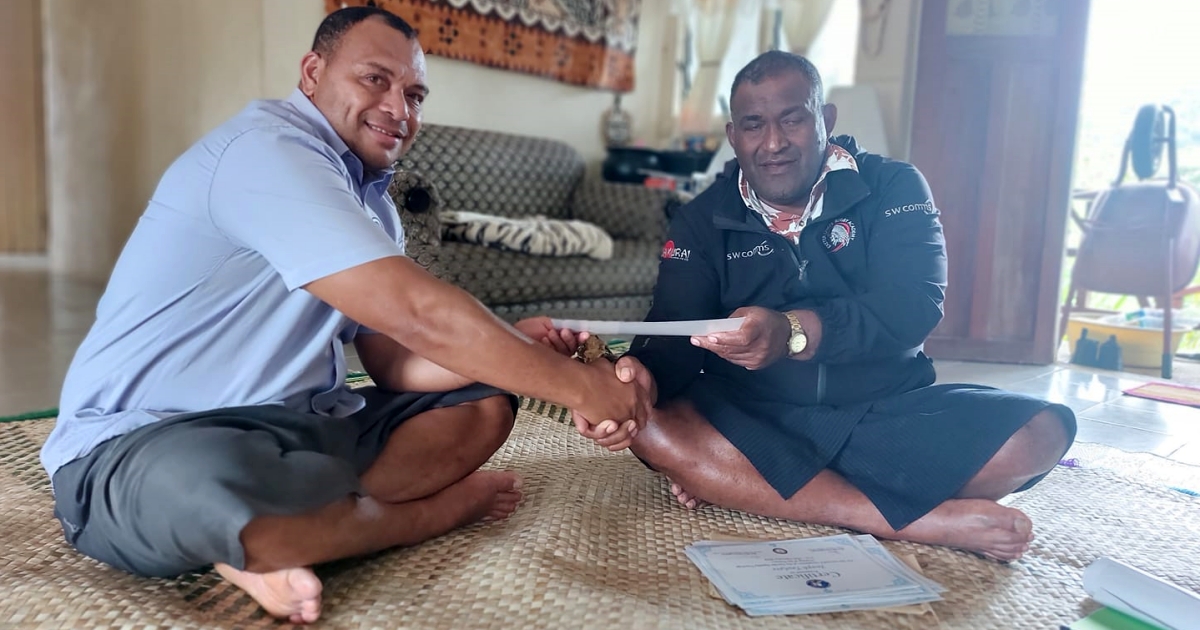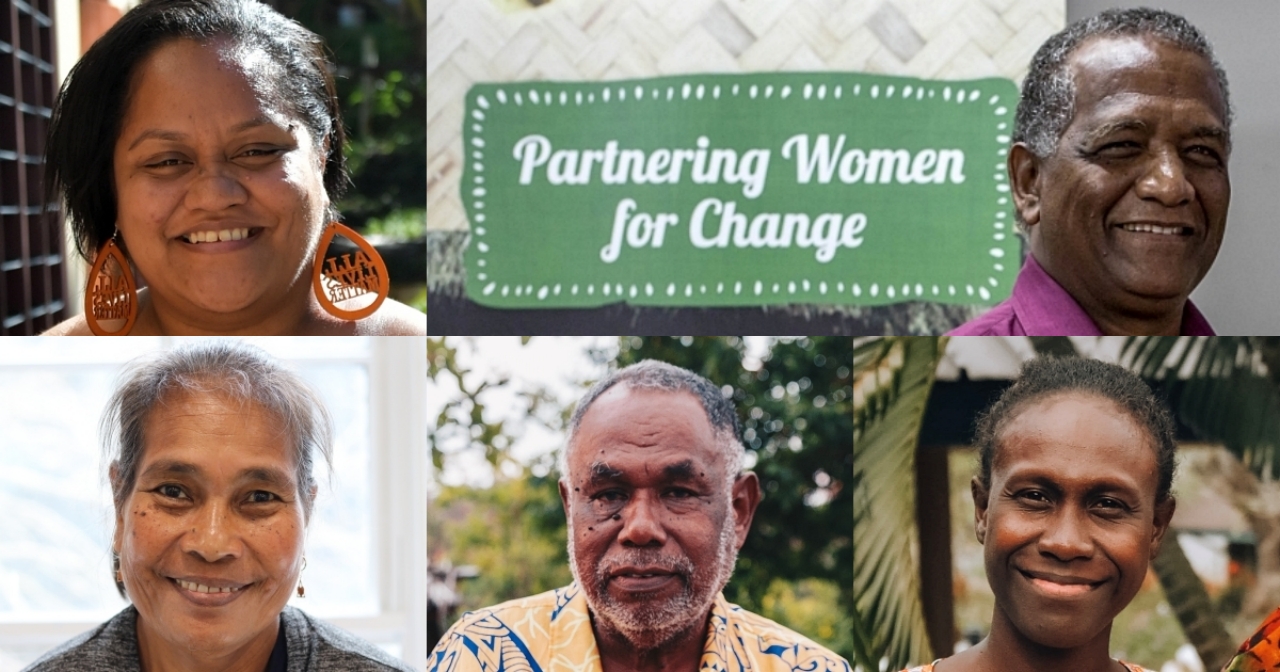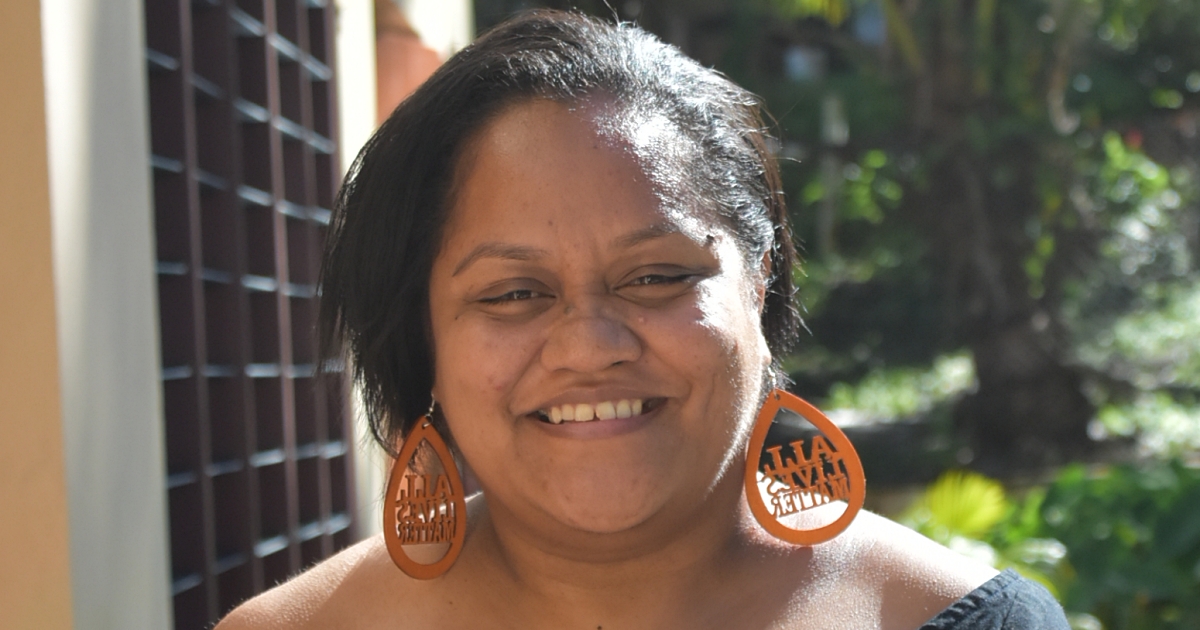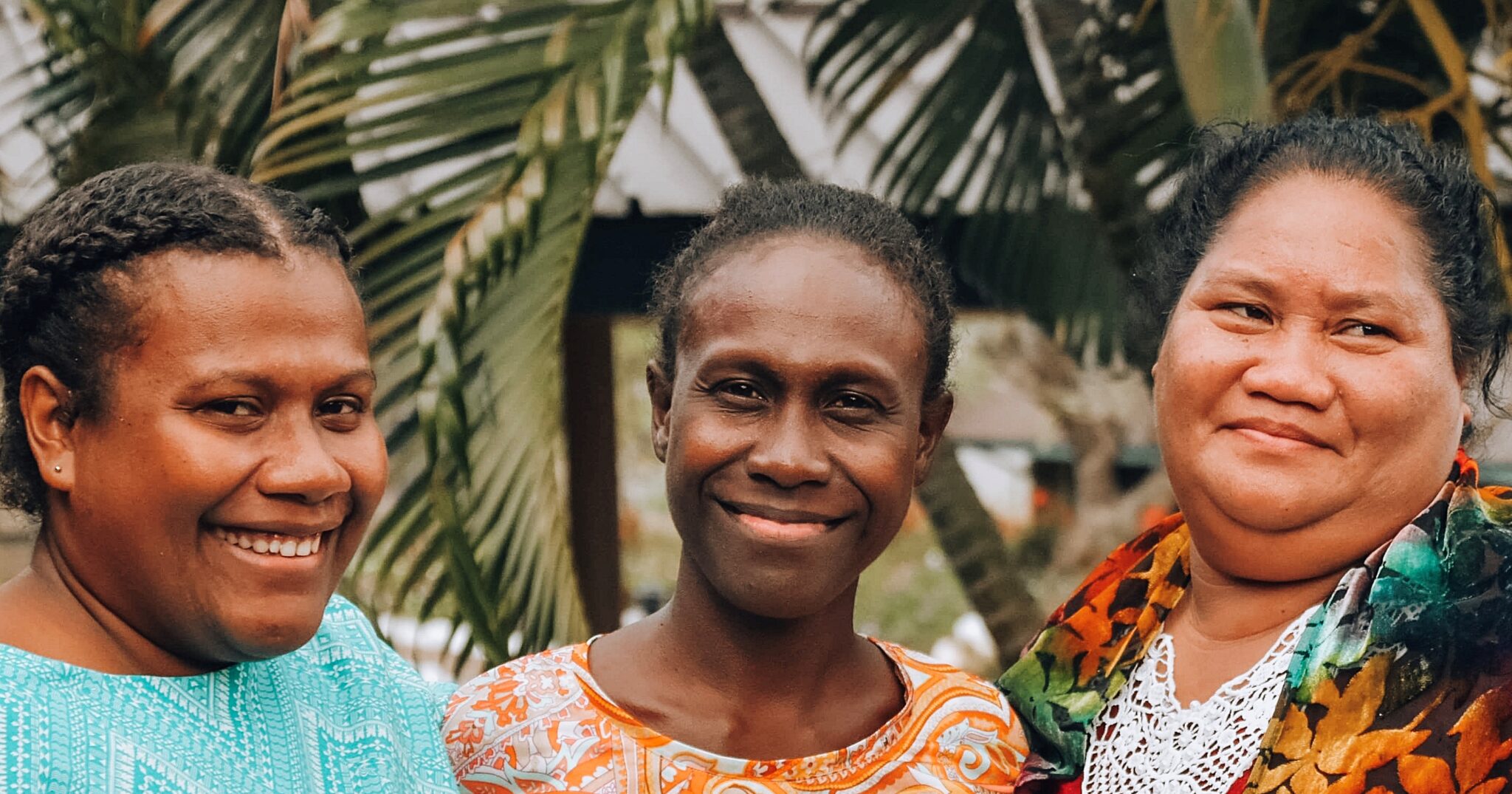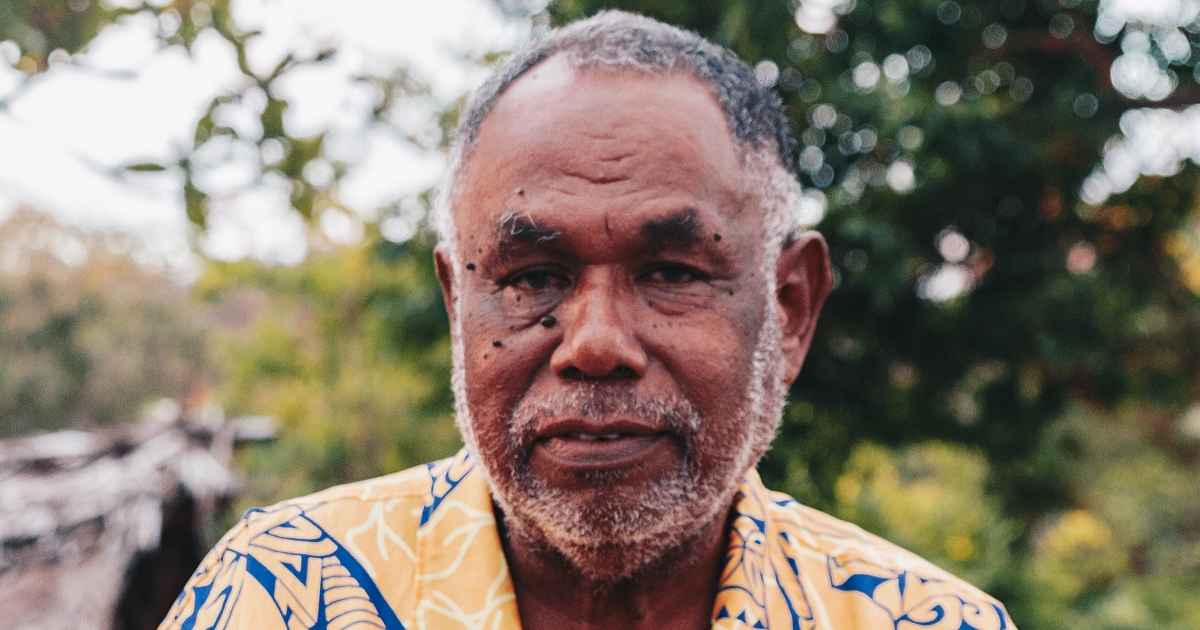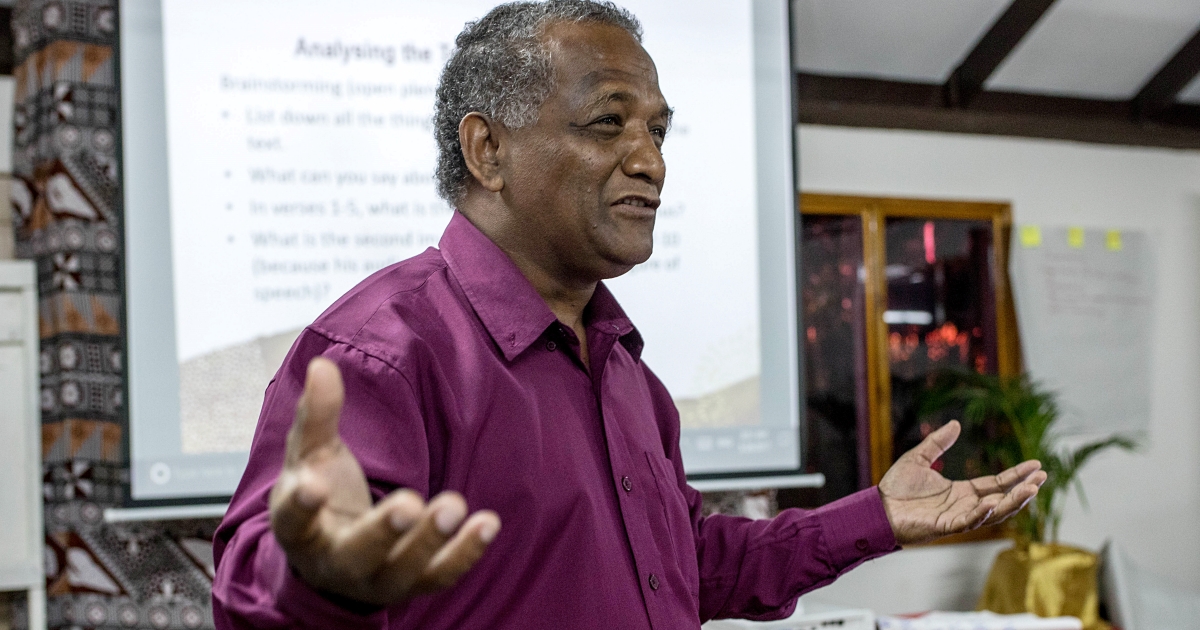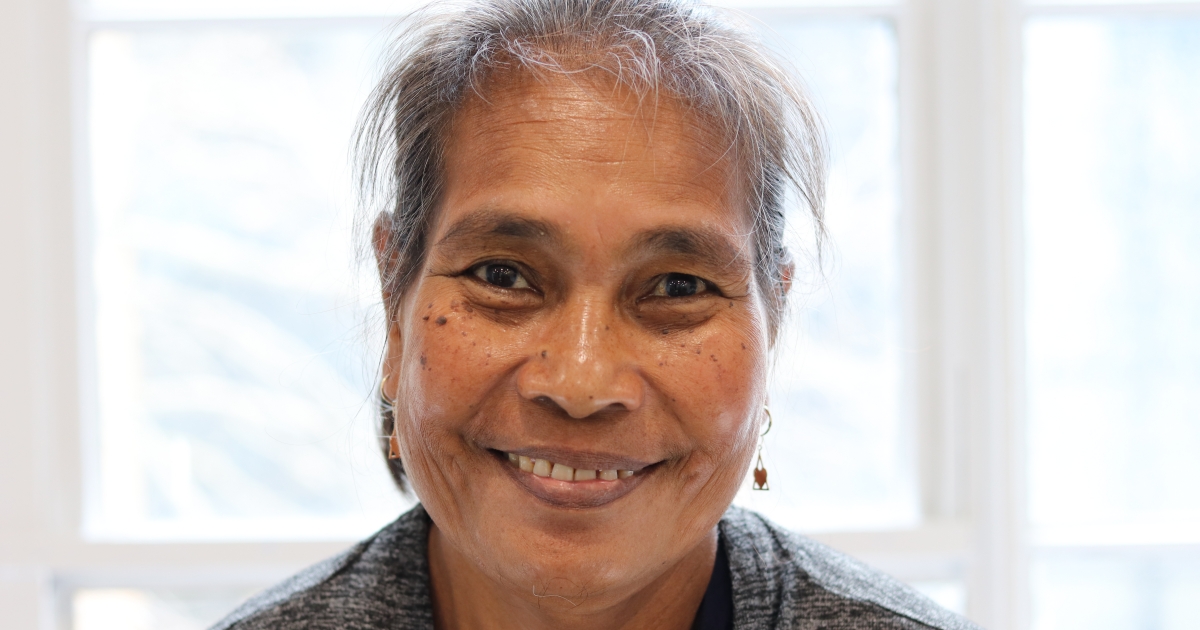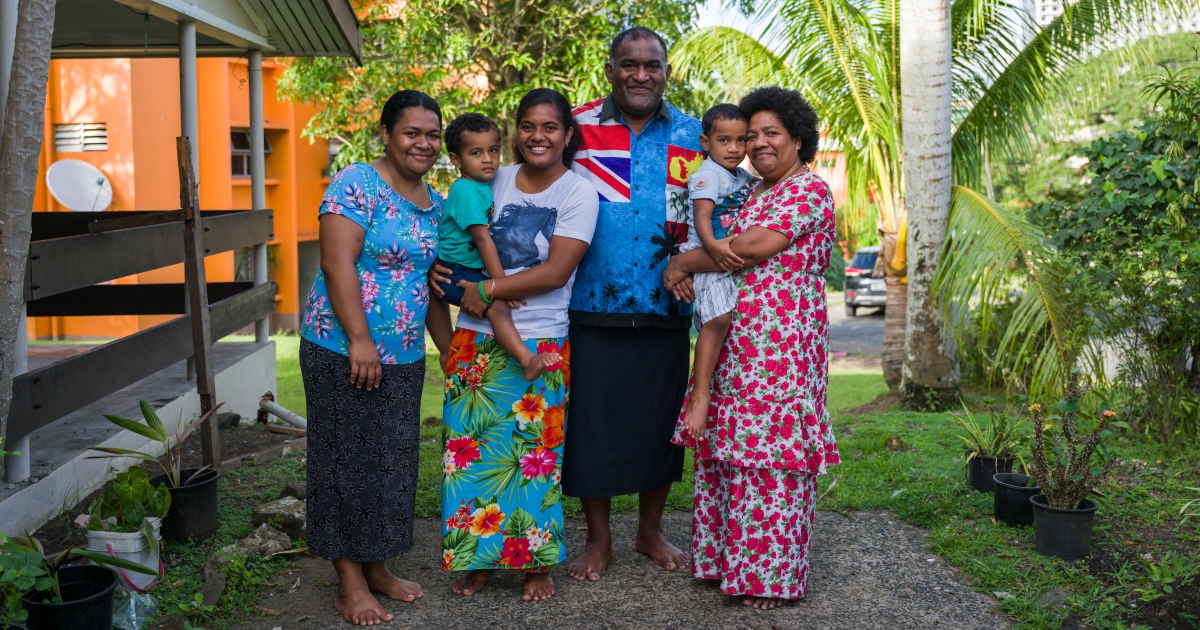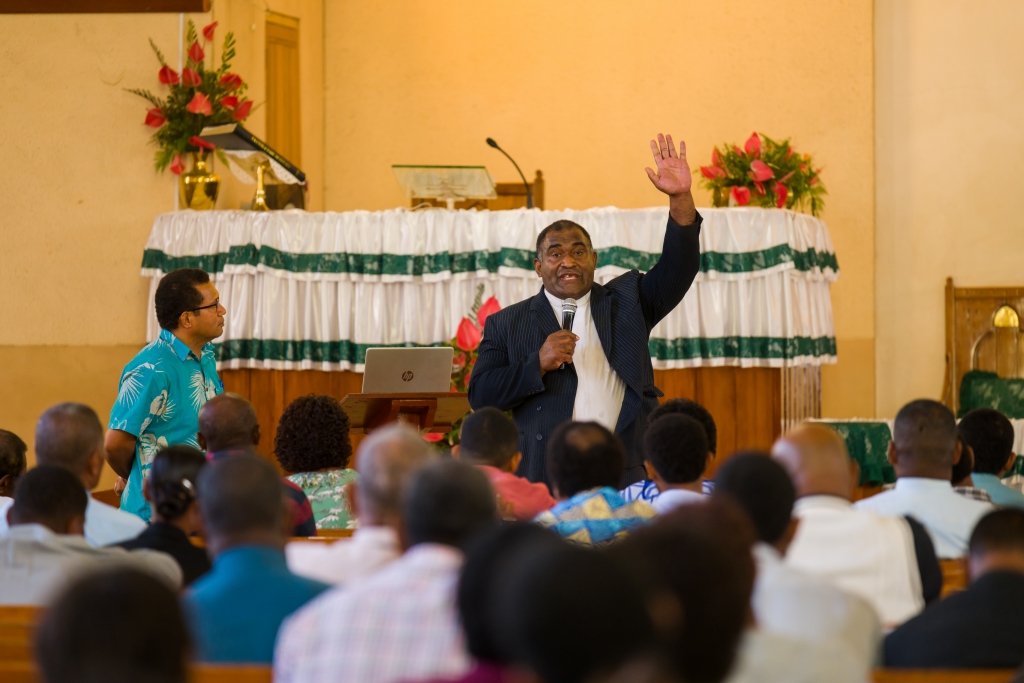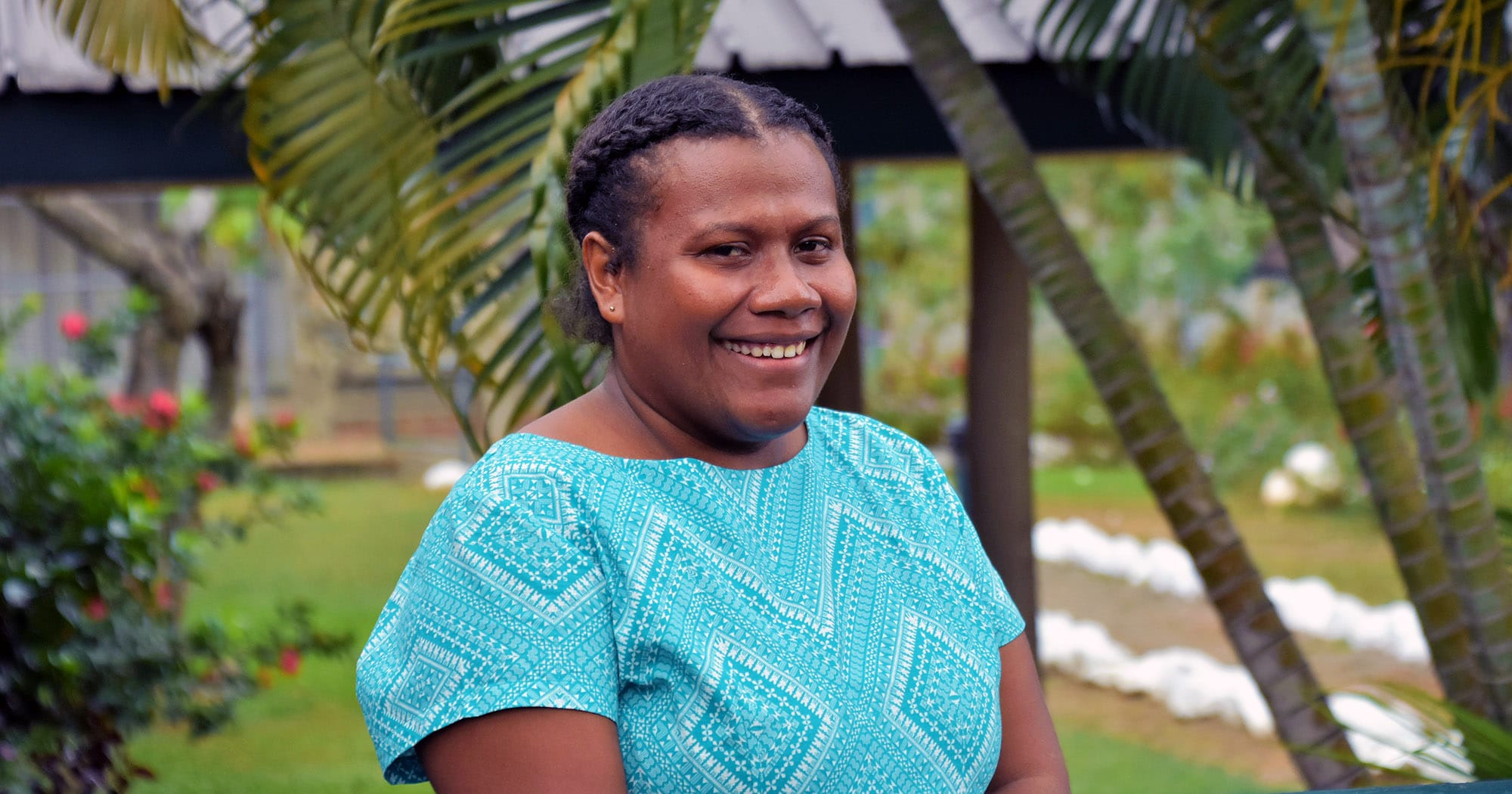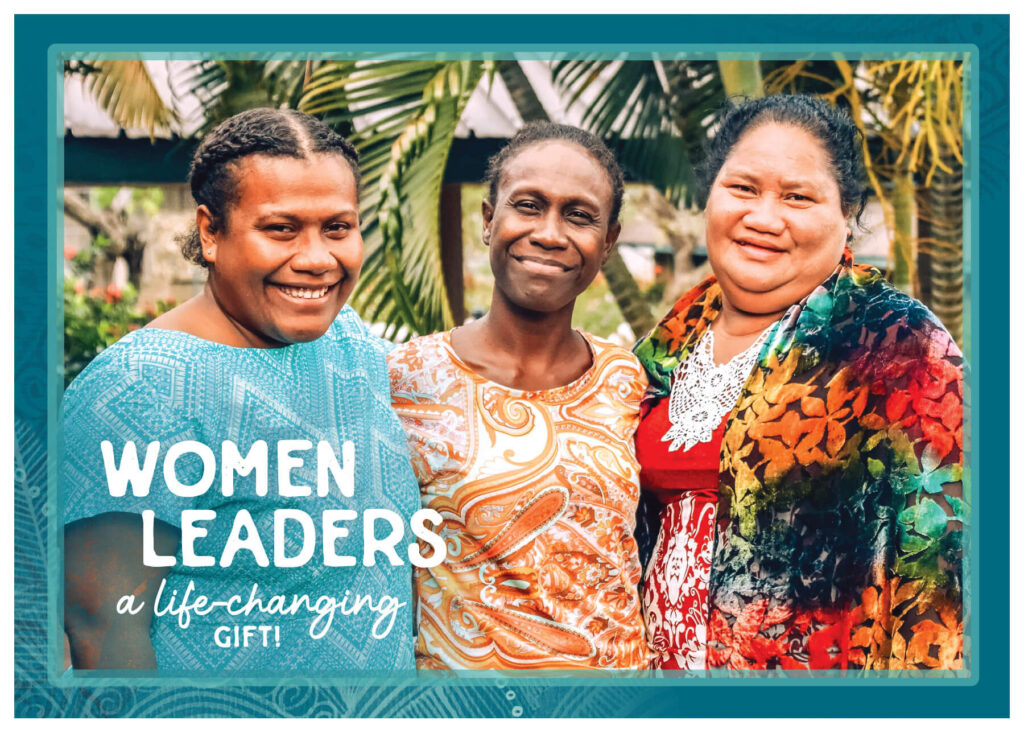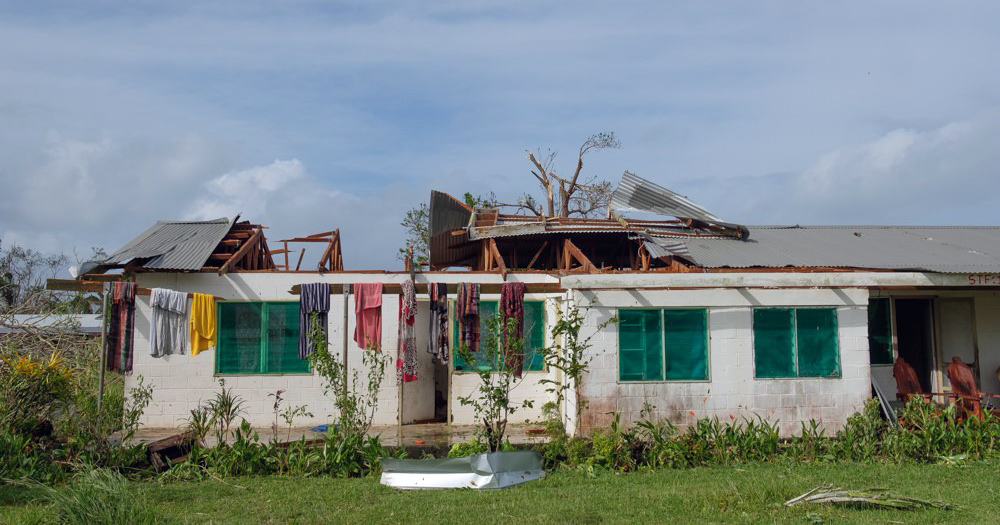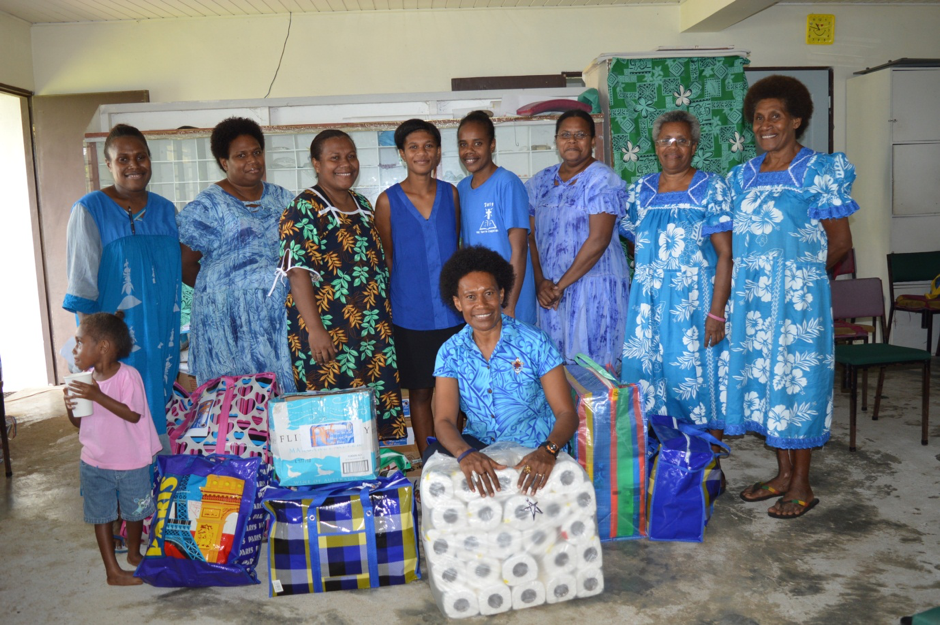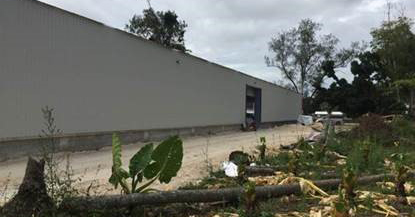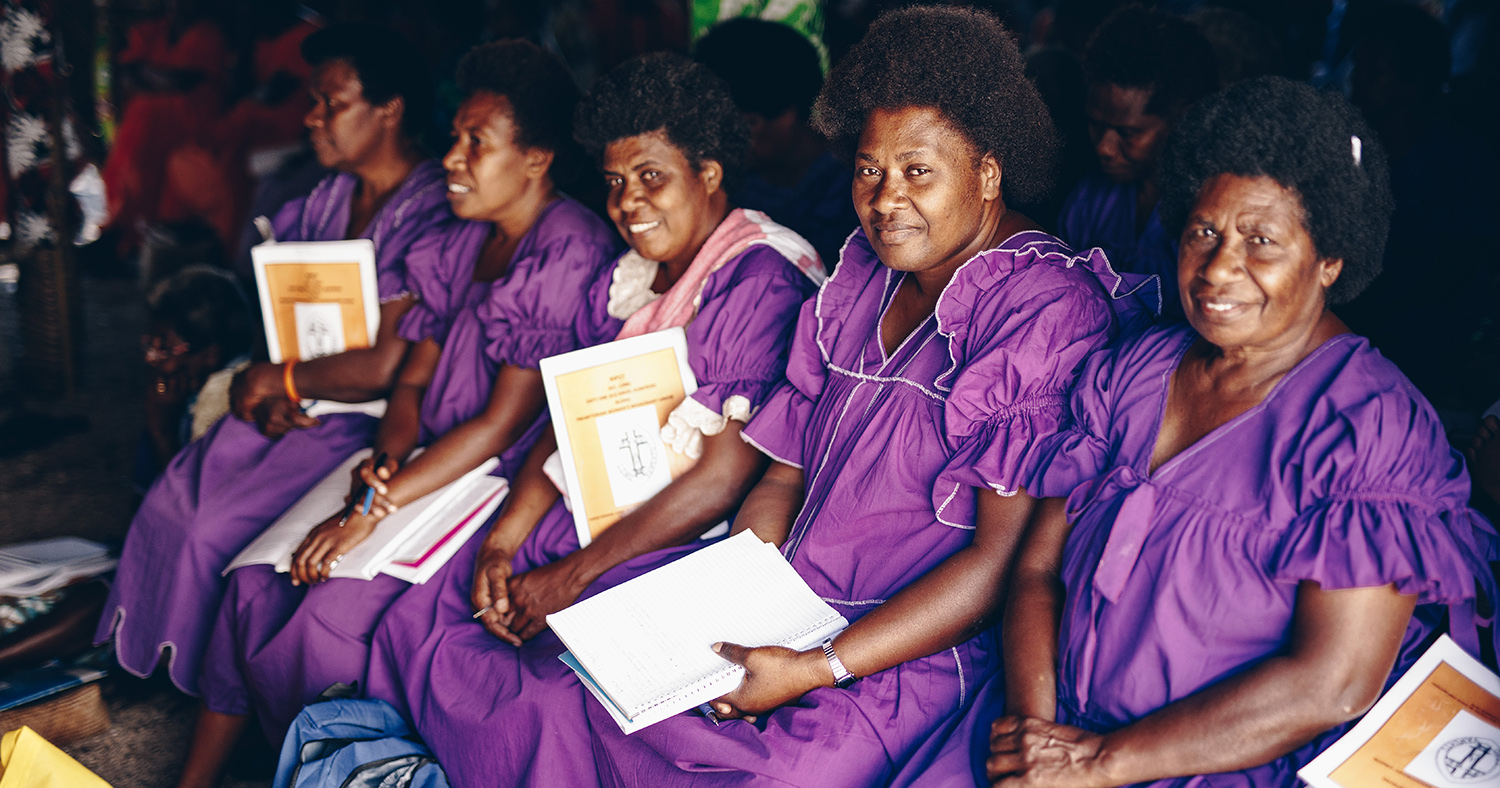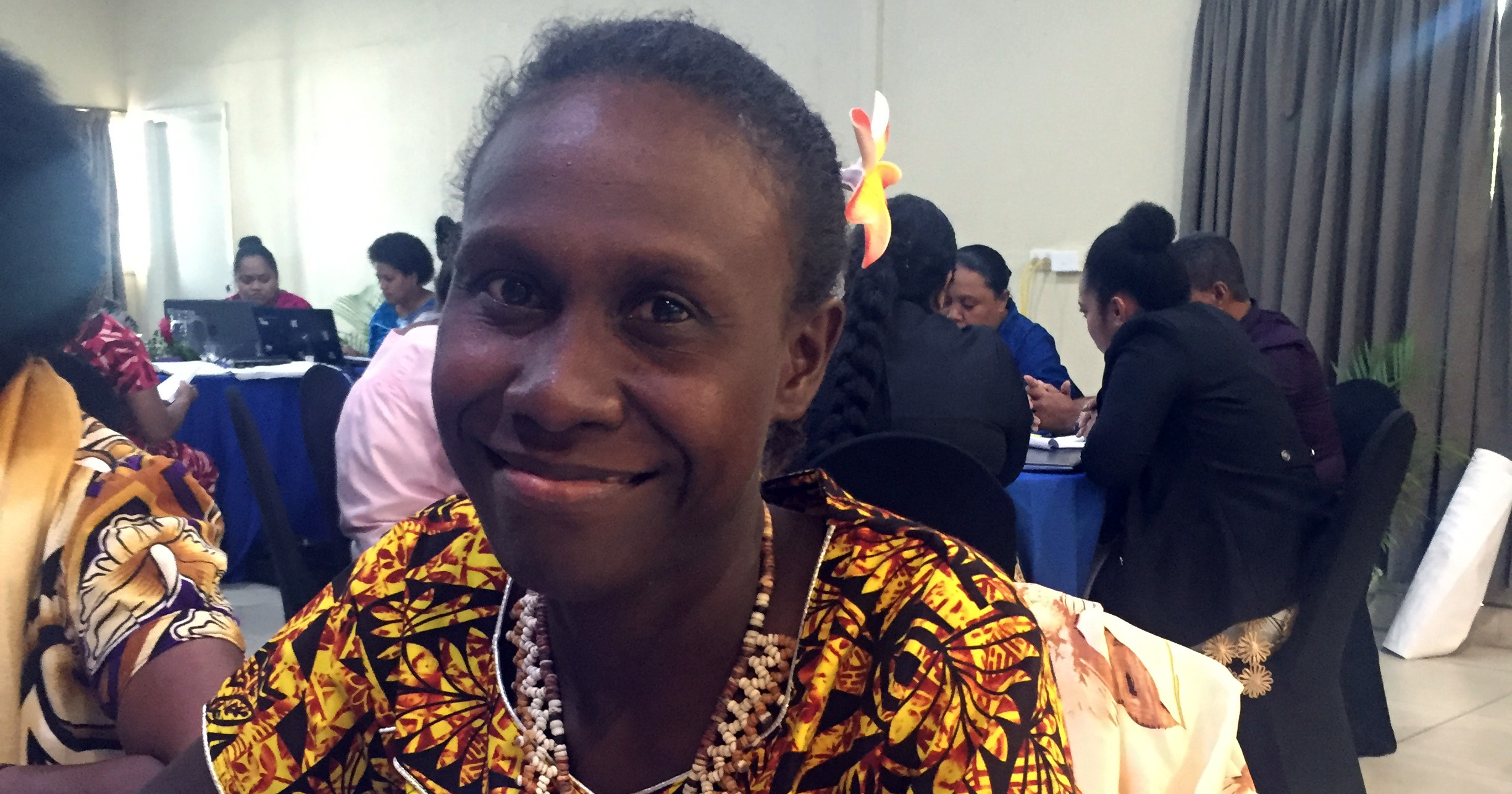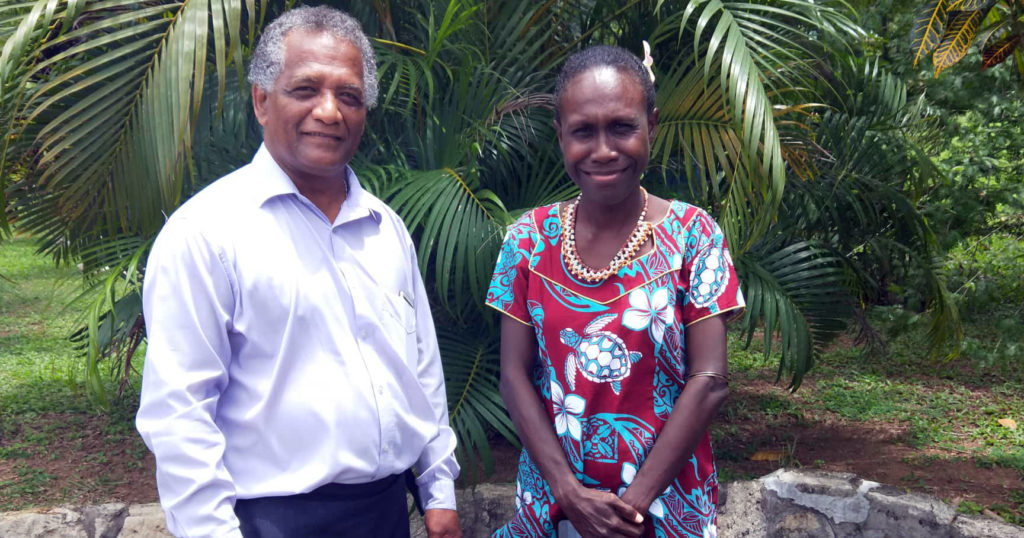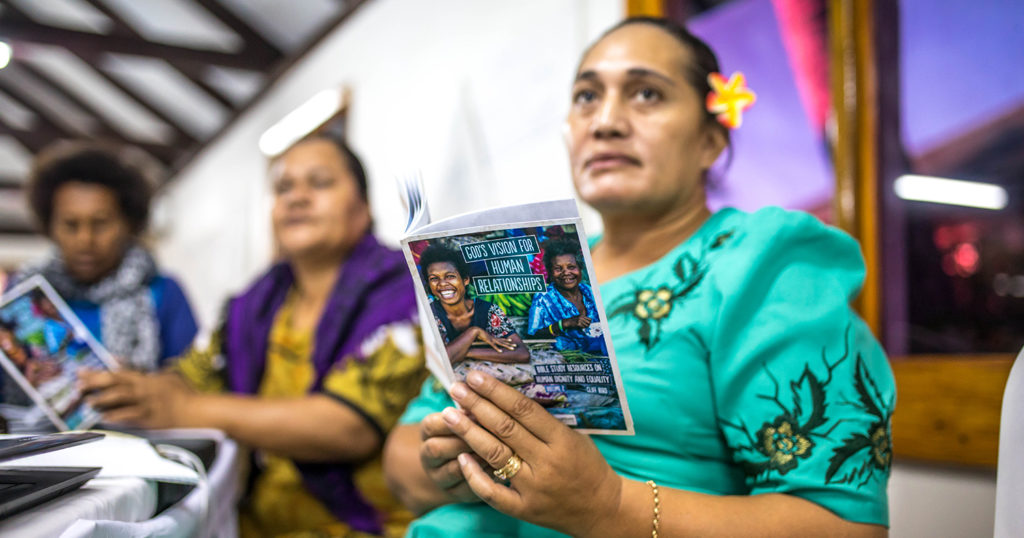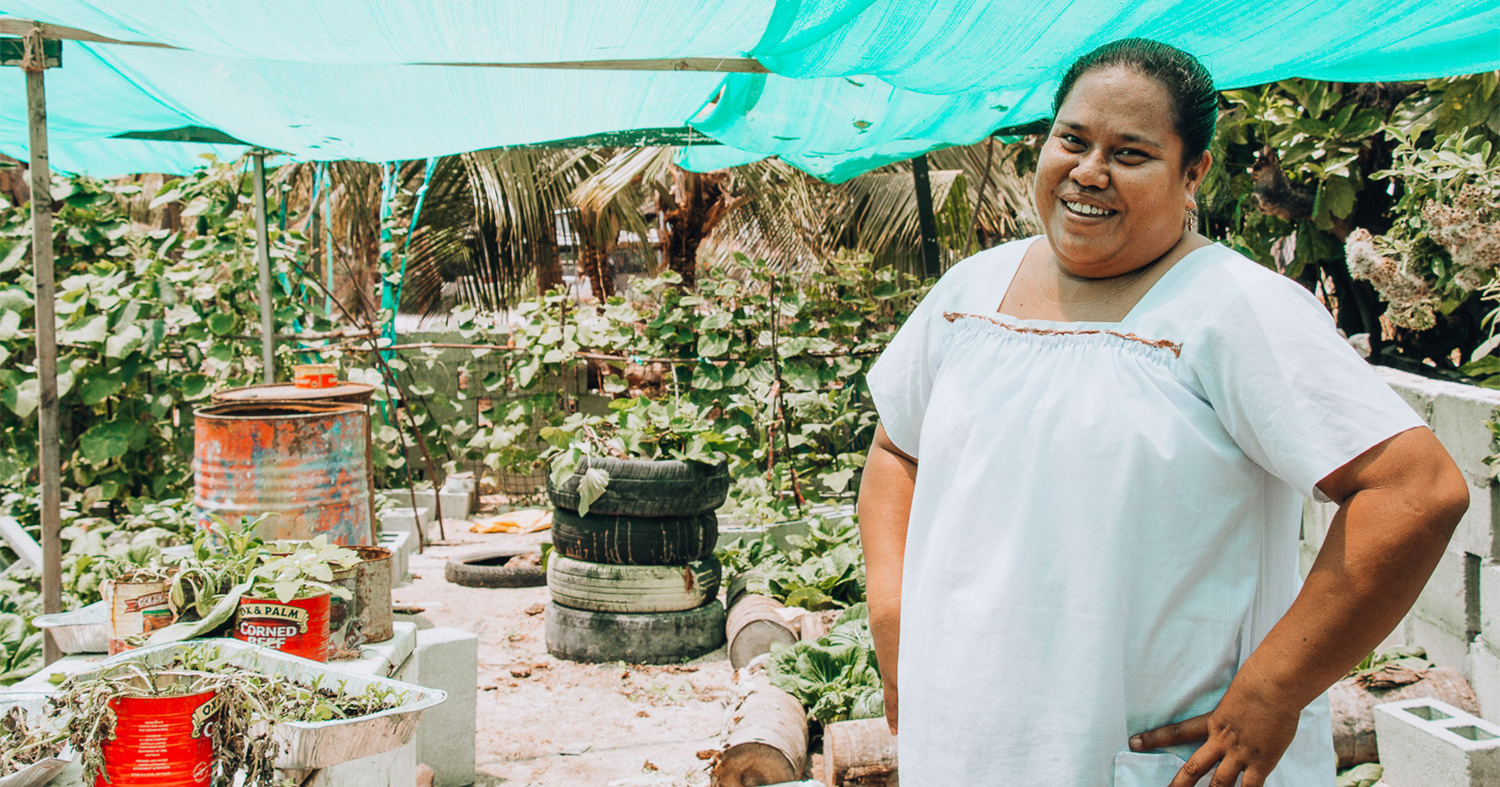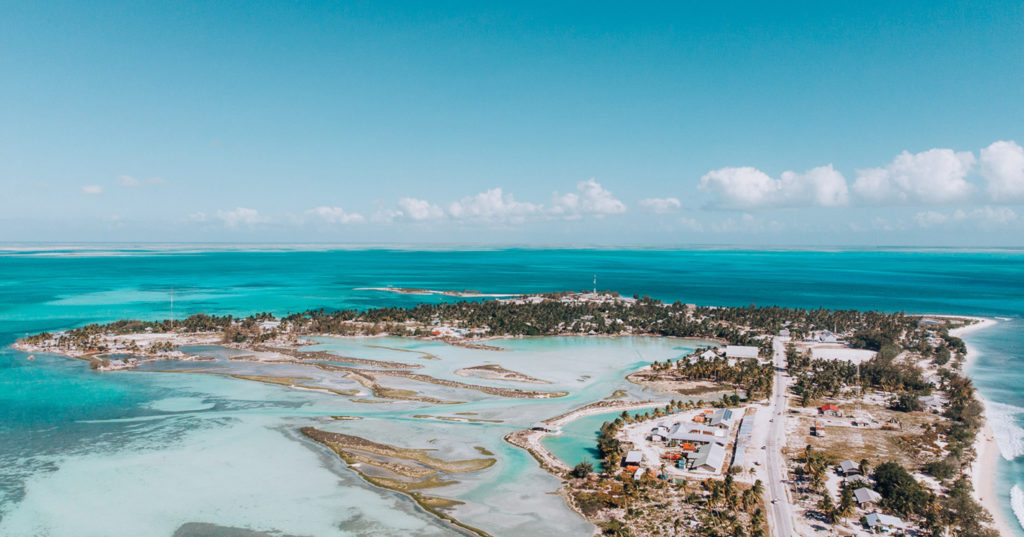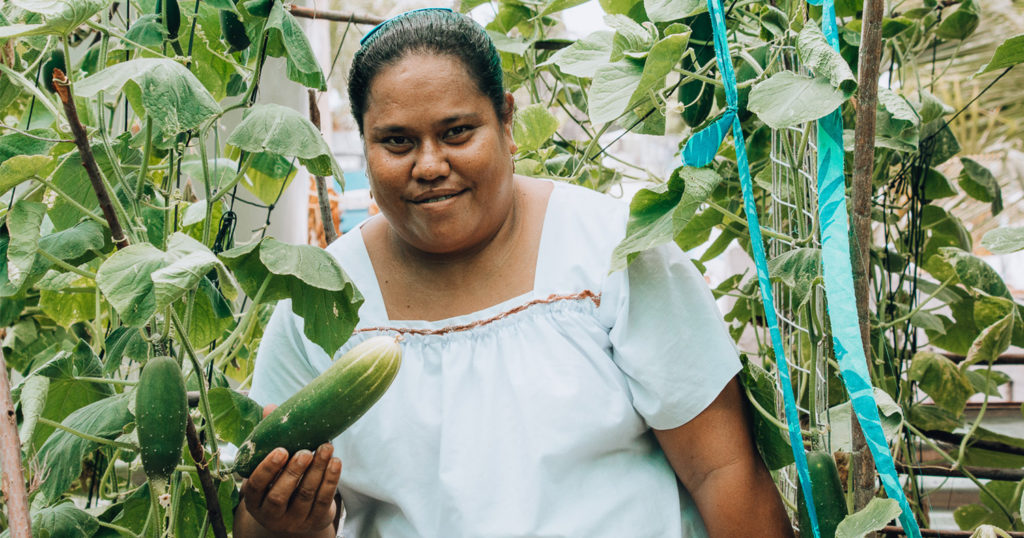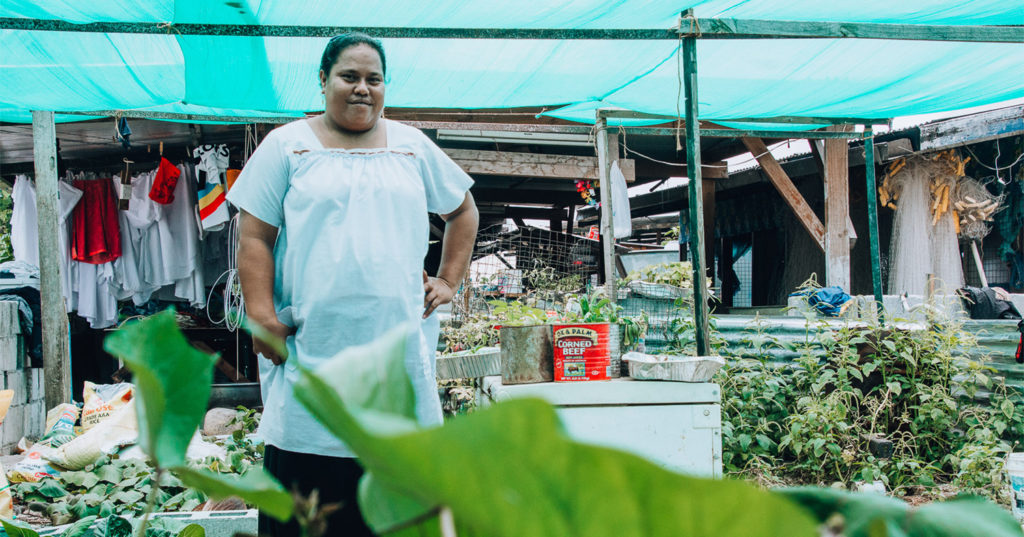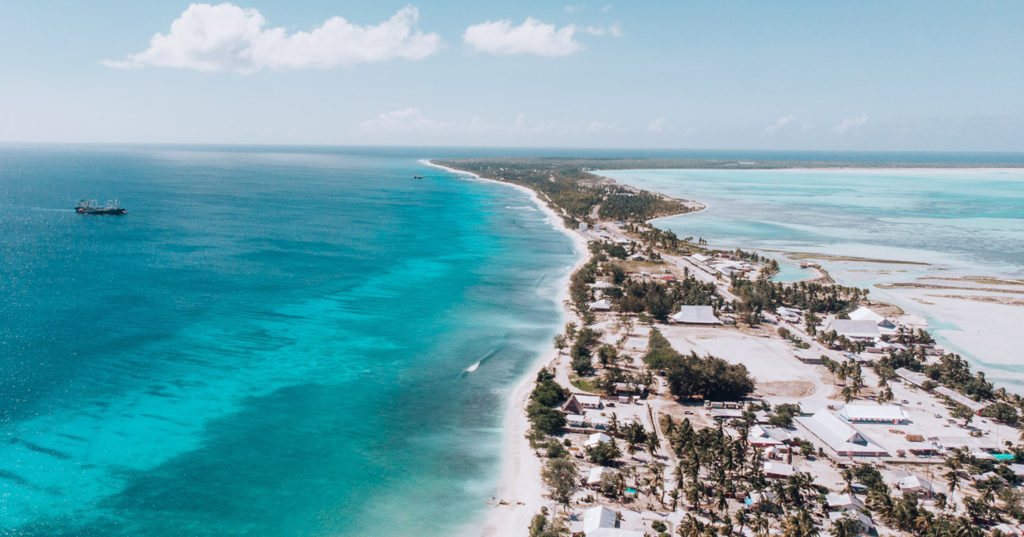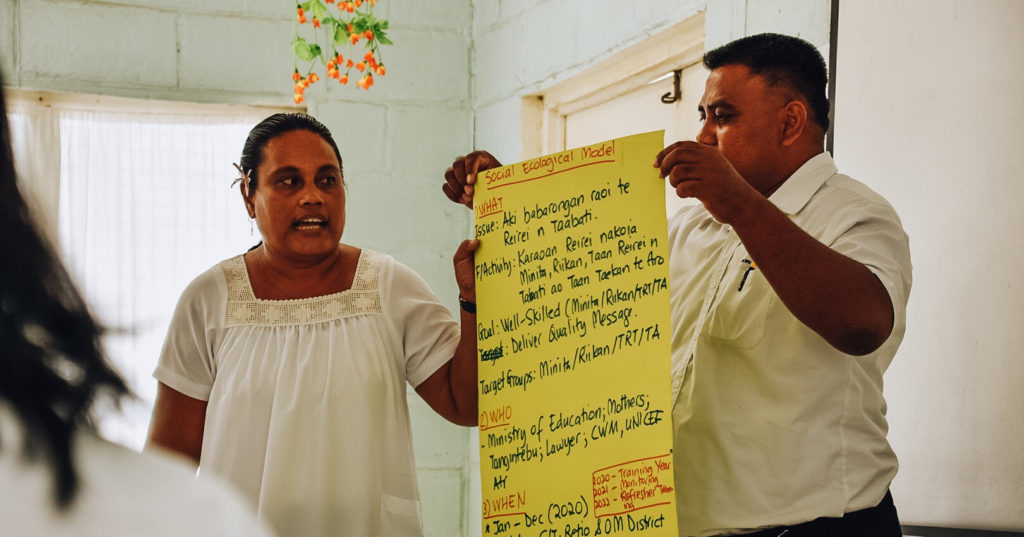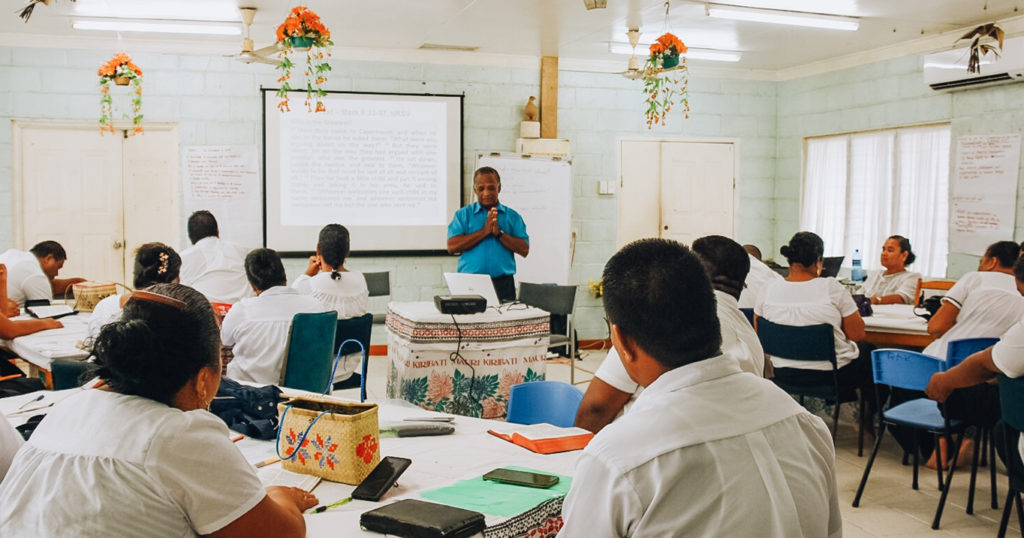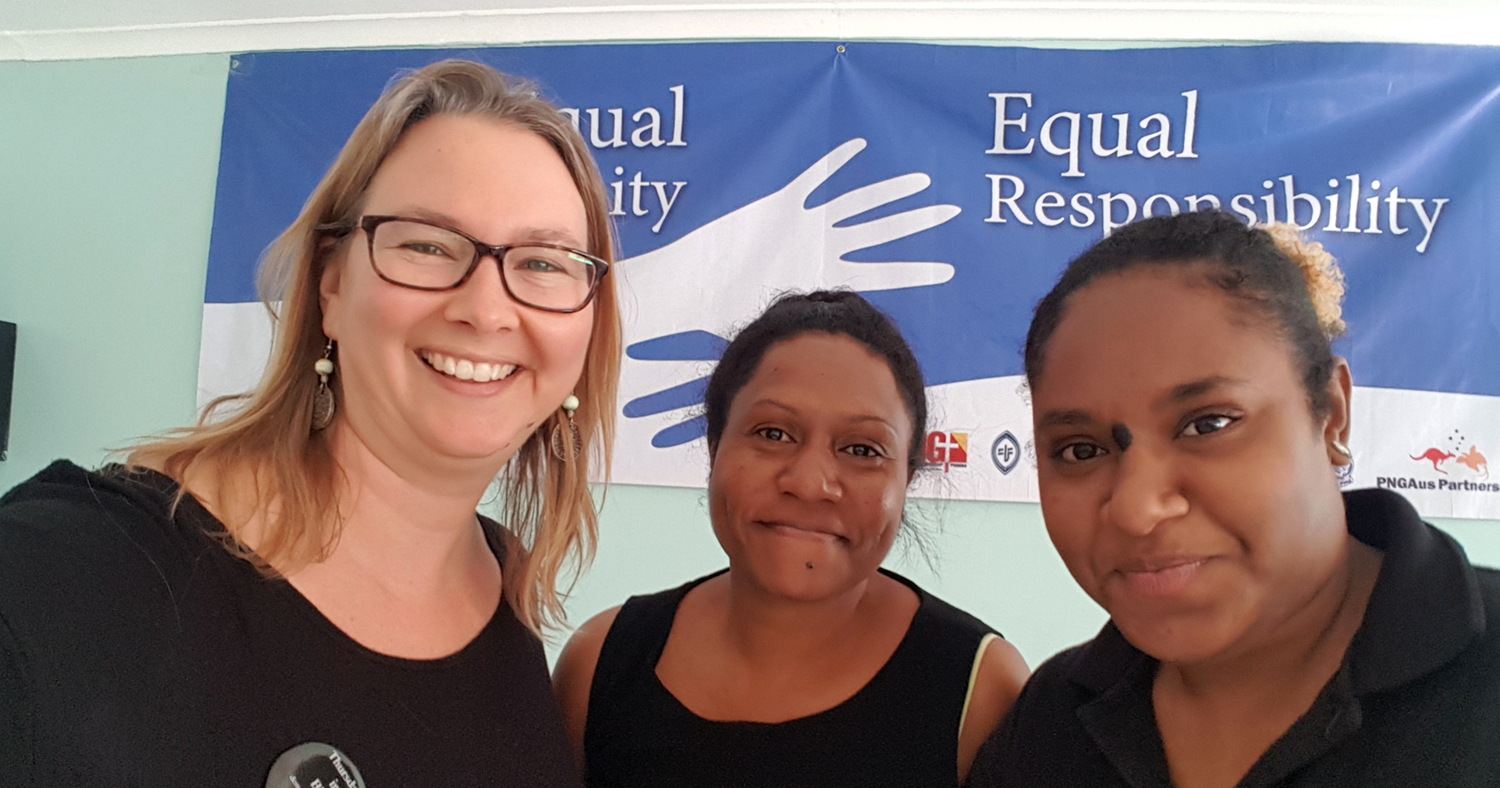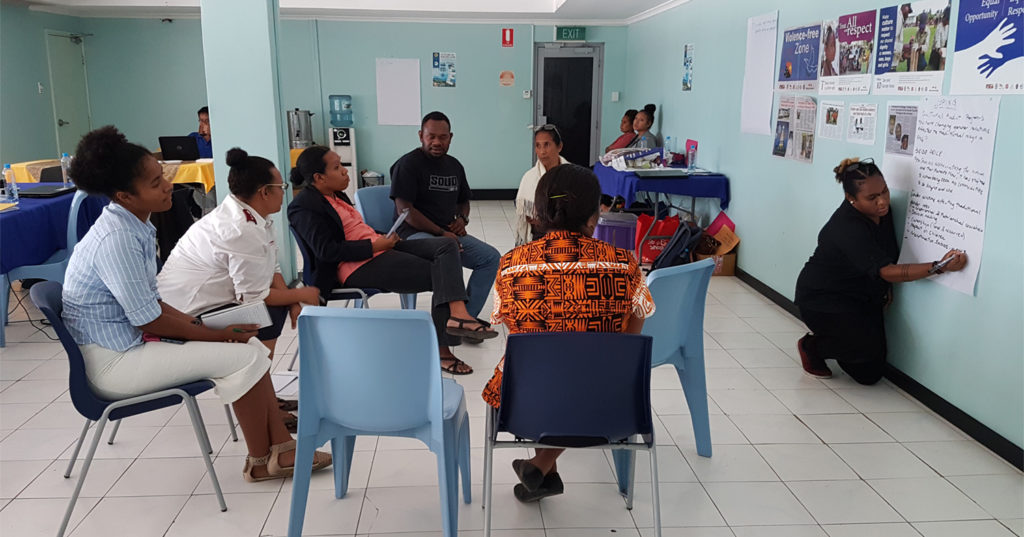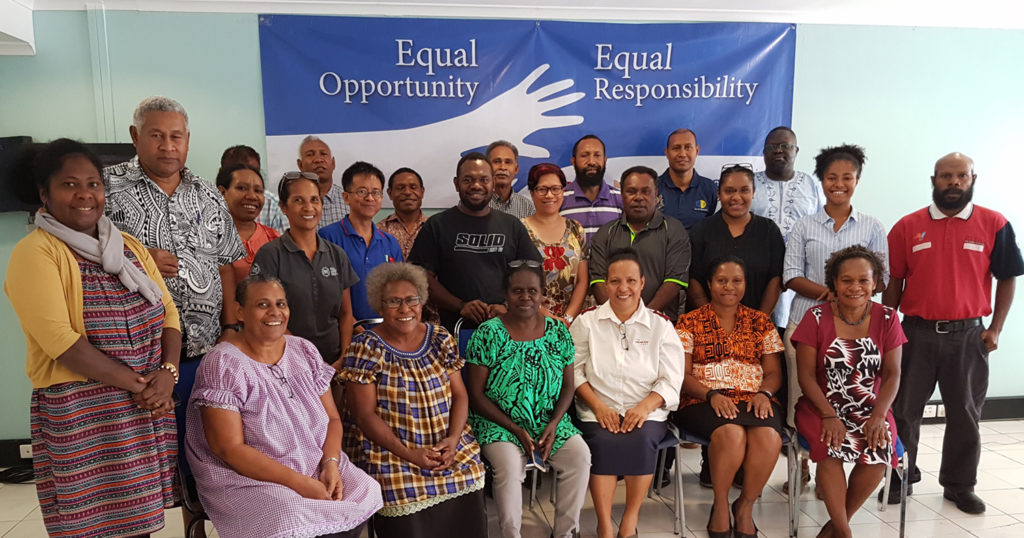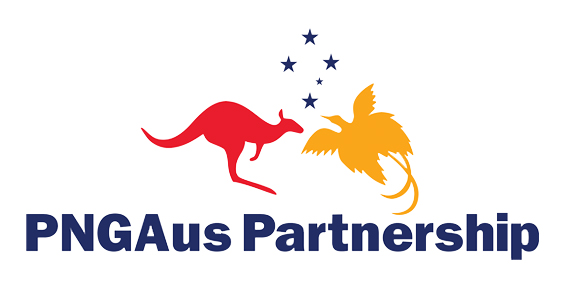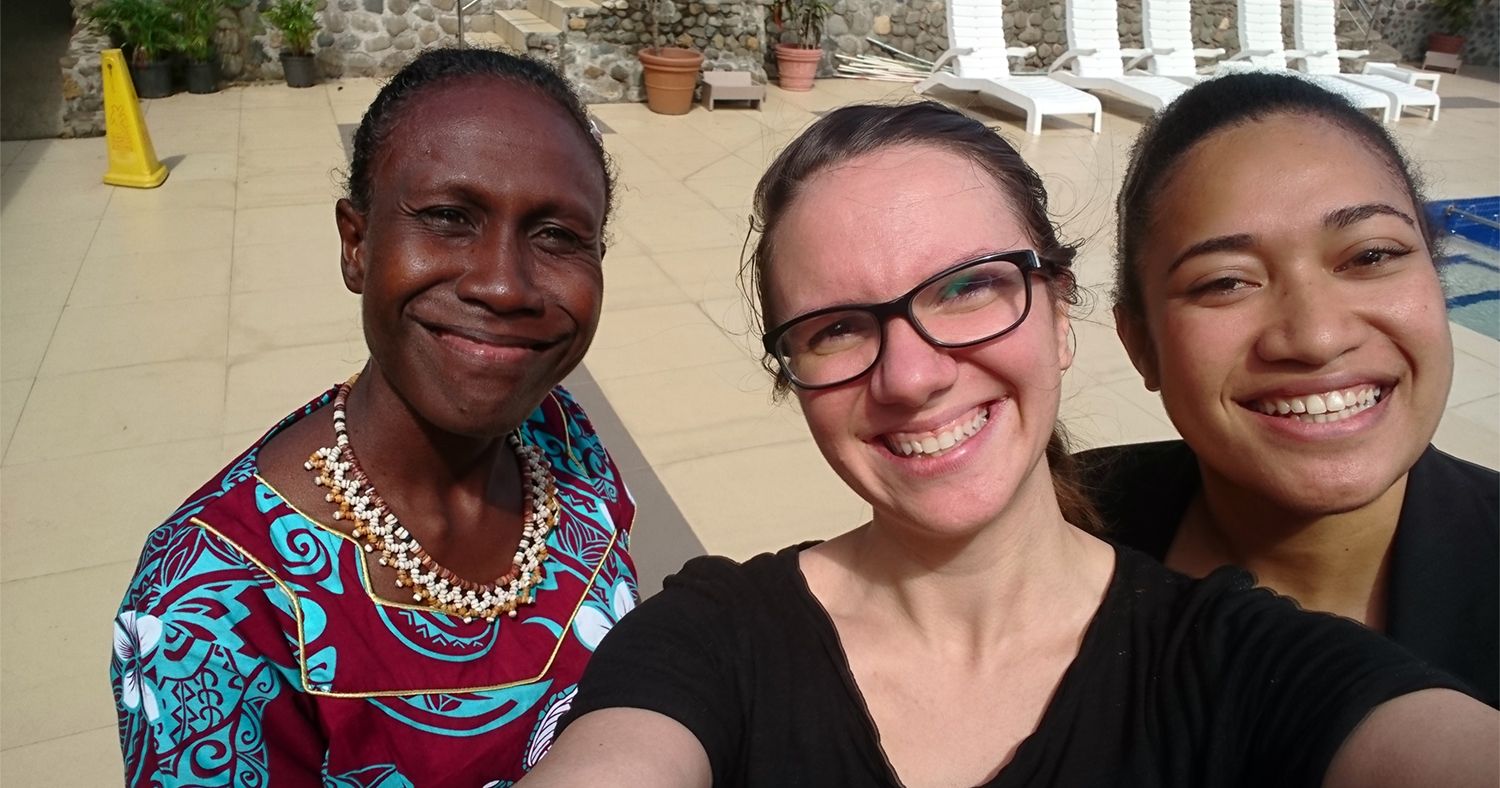Mary’s father told her not to do it.
Her husband told her not to do it. Everyone in her community told her not to do it.
She did it anyway…
Mary went to college to begin training to become the first woman pastor in the Presbyterian Church of Vanuatu.
It may seem like a small thing, but in a place where the dominant culture says that men are the leaders and women follow, you simply cannot imagine what a triumph this was, or how delighted I was to meet Mary recently and hear her story.
“I am one of seven children and all my life I wanted to serve God,” Mary proudly told me, as chickens scratched nearby. “In grade six, I passed all my exams – the only girl in my whole village. I went on to high school in Port Vila. I wanted to be a minister in the church.”
Top of her year right through to grade ten, Mary’s dream had been to go on to university and theological college. But she was set for heartbreak when her family chose her brother instead of Mary to be given the chance for higher education.
“I trained to be a schoolteacher, but I didn’t give up my hope of pastoral training,” Mary said. “And after a few years I went back to do a course through the theological college. My father told me not to continue. He said “People do not want this! They don’t want the women preaching and leading. It’s not our culture.” I told him ‘No Dad, this is my Christian faith. I need to do this. And if the young men can do it, why can’t I?”
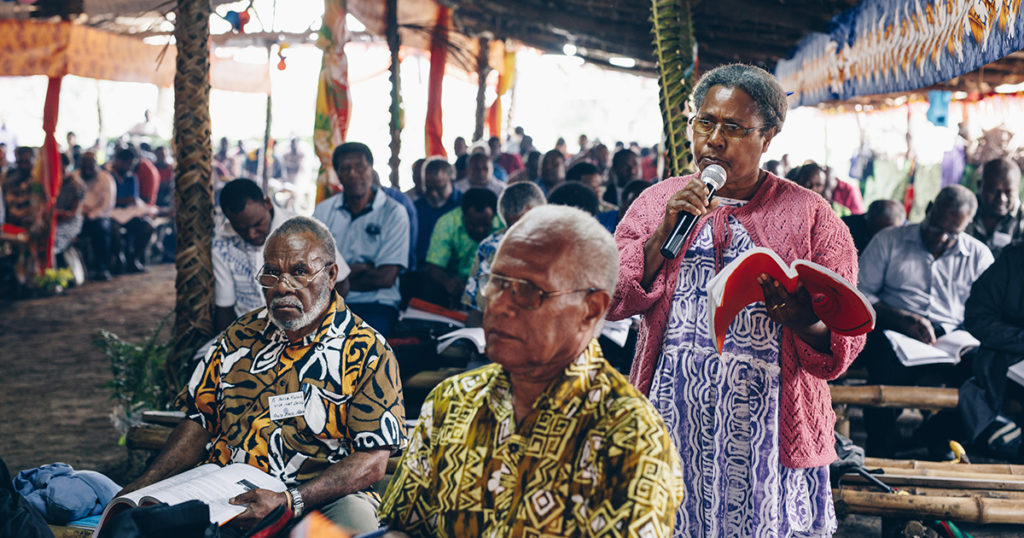
Mary’s challenges will be familiar to you if you’ve read about our work in the Pacific before. It’s not just patriarchy that has held women back from opportunities and enabled high rates of domestic violence. Traditional readings of the Bible have also justified unequal power between men and women.
That’s why Mary’s determination to challenge the status quo, following her call into ministry despite the difficulties, is so significant.
“I finished my training and was sent to teach religious instruction at one of the high schools and also helped with theological instruction in a training centre, but I became very sick and had to return home,” Mary continued. “That’s when one of the local families suggested I marry, and introduced me to the man who would become my husband – they explained that I would have good support for my ministry and I was excited! We married and soon our first son was born.”
But the next few years continued to hold many challenges for the young family. Placements were hard to come by, and Mary was only offered remote areas in which to serve. Both men and women were uncomfortable with her leadership and it was considered taboo for her to speak in public or to be involved in decision making.
“As I studied more and more from the Bible, I began to ask questions of the village chiefs. ‘Why are women always treated so badly? Why should they suffer so much?’” Mary recalls.
“And as I took more leadership, my own husband began to spend more and more time away from home. Eventually he told me: ‘I have fallen in love with someone else. I have taken another wife.’ My heart was broken.”
Now on her own with three sons, there were few places Mary could turn to for support.
I’ve seen firsthand how difficult life can be for women and girls like Mary in the Pacific. Poverty and violence tighten like a noose on those without family networks because most women don’t work – they’re full-time mothers and wives. Vulnerable and often silenced, there simply haven’t been places for women to speak out or find support for their plight.
Until now.
Stirred by their belief that equality between men and women is at the very heart of God, our church partners across the Pacific are taking action. In a culture where 90% of people identify as Christian, they recognise their influence to help end violence and create a future of dignity and equality for women and men.
You can help our church partners change lives and end family violence Donate today.
The breakthrough – and with it, relief for women like Mary – really began with a meeting of leaders just a few years ago. Ministers, government leaders and lay people came together from across the Pacific.
Solomon Islander Reverend Dr Cliff Bird, alongside his wife Siera and using resources developed with the assistance of UnitingWorld, opened the Bible for the first time to this influential group to teach the richness of life available when we recognise the equality of both men and women.
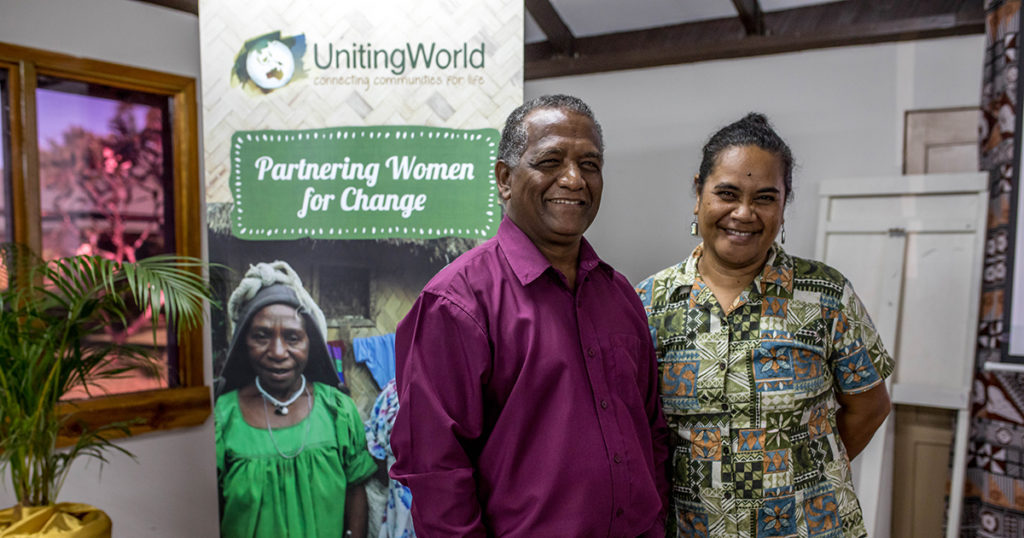
Rev Dr Cliff and Siera Bird
The Birds taught partnership. They taught trust and cooperation.
They taught the truth found in Genesis that both man and woman are created in the image of the same God, with equal value and potential.
They taught the gospel story of the woman caught in adultery and how Jesus non-violently challenged the Pharisees and Scribes to prevent violence against the woman; “Where was the man who committed adultery?” they asked.
They taught Paul’s description to the Galatians about their unity and equal value in the eyes of God: “…there is no longer male and female; all are one in Christ Jesus.”
And they taught the freedom that can be found when men and women work together in partnership, unravelling how centuries of unquestioned male dominance was ruining the harmony God intended for us all.
Change is happening. For many, the teaching was a complete revelation. They’d simply never heard anything like it. Men openly wept. They recognised the way superiority feeds arrogance and seeds violence. And they asked for forgiveness. They were hungry for a new way to relate to one another and their community.
The men went back to their churches and communities. They began the slow and painstaking work of committing to address the systemic inequalities that characterised their lives, homes and institutions; making plans to live, teach and workshop their new knowledge.
In their own lives, they began to make small changes – listening to their wives, acknowledging their daughters, cleaning the house and taking a bigger role in their children’s lives. And they began to recognise acts of “family discipline” for what they were – often violent and abusive – within their communities and homes.
As we supported our partners to lead more workshops in their churches, we began to hear more of these stories, over months and years from across the Pacific. We realised that this was a way to address inequality and violence that cuts through at all levels.
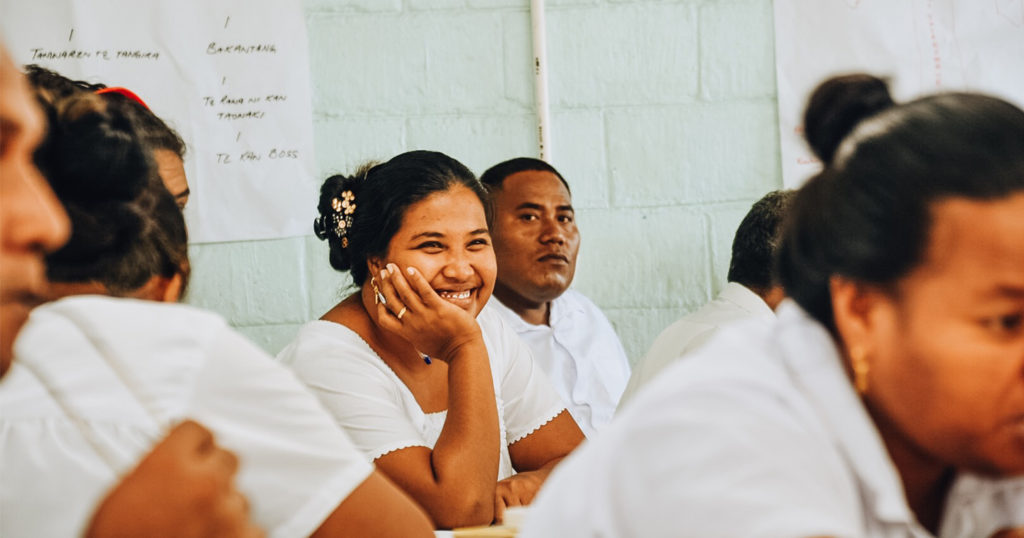
A Gender Equality Theology workshop in Kiribati, 2019
Incredibly, the work was recognised by the Australian Government. They saw that in many Pacific societies, one of the most effective ways to make change was by supporting churches to re-examine their theology, create advocates and communicate messages of equality through religious networks. They recognised the enormous potential that churches hold as agents of change in communities right across the Pacific. They’ve been a supporter of this work ever since, learning from our partners’ resources and experts.
We know this approach can make a difference to the lives of women and men in the Pacific; restoring equality, reducing violence and helping girls thrive. But we need your support. For centuries, the implicit and explicit teaching of church and culture has been that women are subordinate to men, with all the assumptions that go with it. Unravelling this mindset is long-term, difficult work. Click here to donate now.
In Vanuatu where Mary has struggled all these years, Pastor Nipi was one of many people to attend gender theology workshops for men and women we’ve facilitated with our partners over the past three years.
“I never knew what gender balance was or what it meant in relation to the Bible,” he told me. “At first I thought – what is this ‘gender balance’ they are talking about? We never believed men and women could be equal. But as I made my studies and we talked, I realised there is something there for me to learn! It has infected me! I like it!”
Once a sceptic, Pastor Nipi is now a colleague of Mary and one of many enthusiasts spreading the word about gender equality across the Pacific. He has now been tasked with preparing theological and practical resources for the Presbyterian Church of Vanuatu to lead the work with communities in remote and rural regions throughout the entire country. From unquestioningly assuming that only men had the power and skills to lead, he now believes that women have a vital and equal role to play.
“Working together, women and men can improve life for people in Vanuatu and the whole of the Pacific Islands,” Pastor Nipi says.
“We are using the radio, television and newspaper to talk about gender balance and what the Bible says and it has created such interest! Many people don’t believe until they study the Bible notes we make and then they say, ‘Oh! There is something here for us!’ And they are accepting women as equals. I cannot tell you what a change this is for us.”
Pastor Nipi says he’s had feedback from rural Vanuatu, high in the mountains and remote areas, that the material being produced is being read with astonishment. In plain language at the level people can understand, this teaching is a revolution in people’s lives.
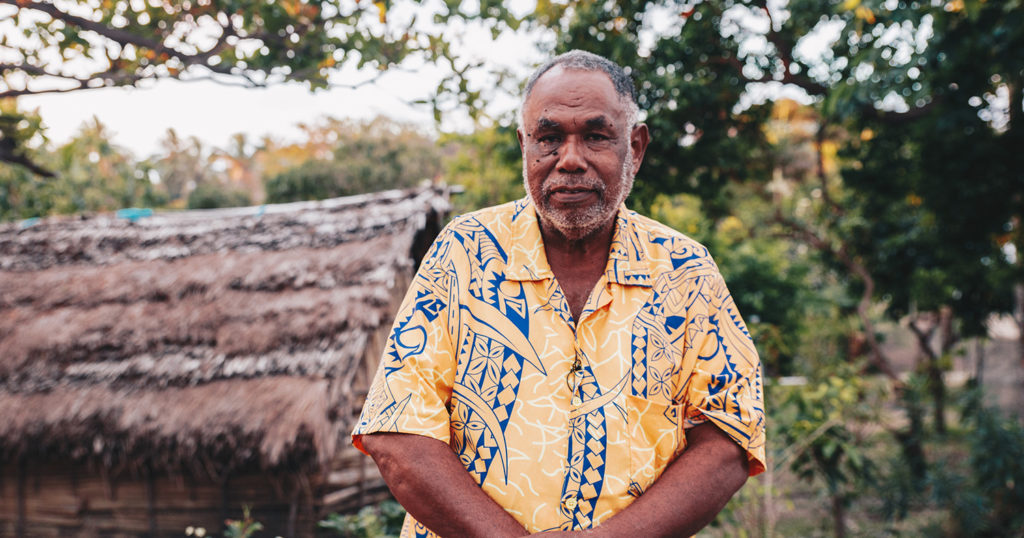
Pastor Nipi, Vanuatu
In Vanuatu, we supported our partners to produce television commercials that call out violence against women as robbing men and women of the fullness of life that God offers. We’ll support more of our partners to do the same in their different contexts across the Pacific.
In Papua New Guinea, theological college students, both male and female, are excited to be attending our first workshops to learn exactly where and how Jesus valued the lives of women.
In Kiribati, we’re preparing plans to combat family breakdown and violence by teaching parenting skills that emphasise the equality and dignity of all people, as well as the rights and responsibilities of boys and girls.
In the Solomon Islands, our partners recently hosted their first gender equality theology workshops led by Solomon Islander theologians. As a result, church leaders took it to their national assembly and resolved that gender equality is a biblical imperative. We are now supporting them as they create contextually appropriate resources on gender equality and child protection and roll it out across their churches.
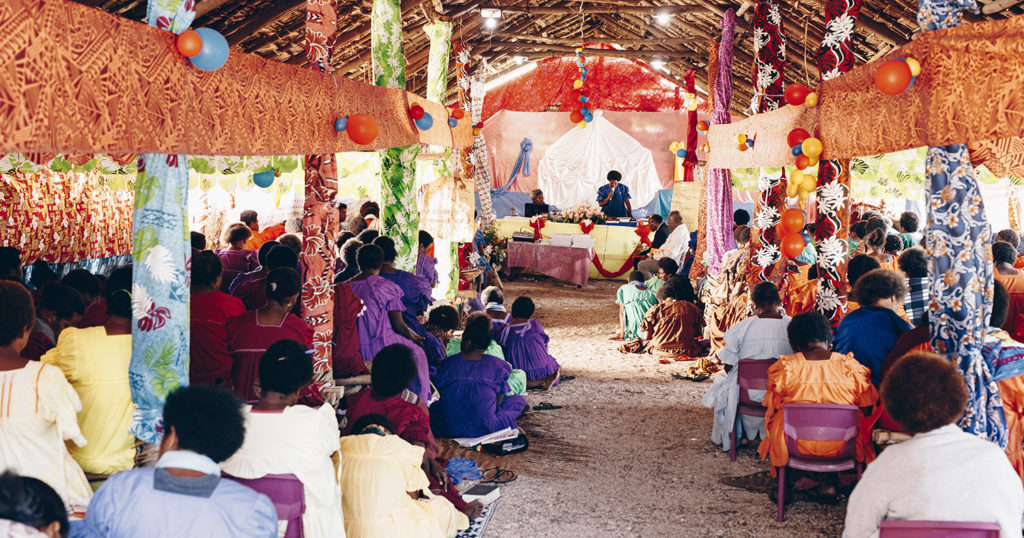
The Presbyterian Church of Vanuatu (PCV) National Assembly meeting
“Here is what I want women and girls to know,” Mary told me from the Presbyterian Church of Vanuatu (PCV) National Assembly meeting, where she was an eager participant.
“We can do this together. We can make this change. In the community, in our churches and in the government – we have an important role to play. And men? Do not criticise us. We can do this together. We can share the responsibility of leadership together.”
Mary continues to serve the church in Vanuatu, no longer on the edges but as a far more respected and integrated member of the community. Her challenges are far from over, but she has come further than she could ever have imagined. The Gender Equality Theology project has helped turn the tide and now many are following in Mary’s footsteps. Since the first workshops were held, a woman has been appointed as the first Presbytery Clerk (Lead Minister) and six more women have become pastors in the PCV.
Mary’s success shows that together we can turn tragedy into triumph.
Your gift today can provide our partners in the Pacific with the ability to facilitate workshops, train workshop leaders, produce training resources and create advocates for gender equality and anti-violence. We know it works. We just need the resources to make it happen.
In a world with far too much bad news, I pray you’ll join me in celebrating Mary’s achievements and supporting more women like her in the Pacific who are ready to overcome inequality and violence.
Mary’s triumph cost her dearly. But in a world full of tragedy, she’s absolutely determined to see more triumphs.
Aren’t you?
Dr Sureka Goringe
National Director
UnitingWorld
You can help our church partners change lives and end family violence with the biblical message of equality between women and men.
Click here to donate now.
